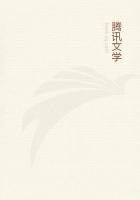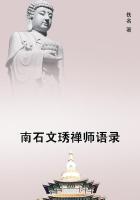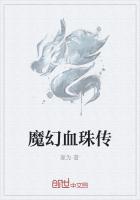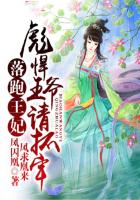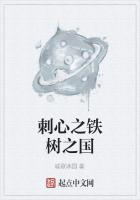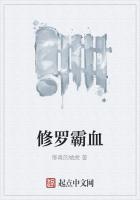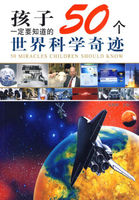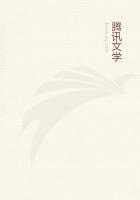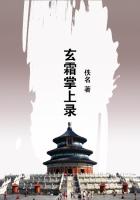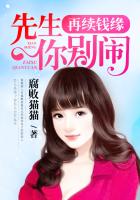Incidentally, when we conceive things thus, as they really are and happened, every profound philosophical problem is resolved, as will be seen even more clearly later, quite simply into an empirical fact. For instance, the important question of the relation of man to nature (Bruno [Bauer] goes so far as to speak of "the antitheses in nature and history" (p. 110), as though these were two separate "things" and man did not always have before him an historical nature and a natural history) out of which all the "unfathomably lofty works" on "substance" and "self-consciousness" were born, crumbles of itself when we understand that the celebrated "unity of man with nature" has always existed in industry and has existed in varying forms in every epoch according to the lesser or greater development of industry, just like the "struggle" of man with nature, right up to the development of his productive powers on a corresponding basis. Industry and commerce, production and the exchange of the necessities of life, themselves determine distribution, the structure of the different social classes and are, in turn, determined by it as to the mode in which they are carried on; and so it happens that in Manchester, for instance, Feuerbach sees only factories and machines, where a hundred years ago only spinning-wheels and weaving-rooms were to be seen, or in the Campagna of Rome he finds only pasture lands and swamps, where in the time of Augustus he would have found nothing but the vineyards and villas of Roman capitalists. Feuerbach speaks in particular of the perception of natural science; he mentions secrets which are disclosed only to the eye of the physicist and chemist; but where would natural science be without industry and commerce? Even this pure natural science is provided with an aim, as with its material, only through trade and industry, through the sensuous activity of men.
So much is this activity, this unceasing sensuous labour and creation, this production, the basis of the whole sensuous world as it now exists, that, were it interrupted only for a year, Feuerbach would not only find an enormous change in the natural world, but would very soon find that the whole world of men and his own perceptive faculty, nay his own existence, were missing. Of course, in all this the priority of external nature remains unassailed, and all this has no application to the original men produced by generatio aequivoca ; [Spontaneous generation. -- Ed .] but this differentiation has meaning only insofar as man is considered to be distinct from nature. For that matter, nature, the nature that preceded human history, is not by any means the nature in which Feuerbach lives, it is nature which today no longer exists anywhere (except perhaps on a few Australian coral-islands of recent origin) and which, therefore, does not exist for Feuerbach.
Certainly Feuerbach has a great advantage over the "pure" materialists in that he realises how man too is an "object of the senses. But apart from the fact that he only conceives him as an "object of the senses, not as sensuous activity", because he still remains in the realm of theory and conceives of men not in their given social connection, not under their existing conditions of life, which have made them what they are, he never arrives at the really existing active men, but stops at the abstraction "man", and gets no further than recognising "the true, individual, corporeal man,' emotionally, i.e. he knows no other "human relationships" "of man to man" than love and friendship, and even then idealised. He gives no criticism of the present conditions of life. Thus he never manages to conceive the sensuous world as the total living sensuous activity of the individuals composing it; and therefore when, for example, he sees instead of healthy men a crowd of scrofulous, overworked and consumptive starvelings, he is compelled to take refuge in the "higher perception" and in the ideal "compensation in the species", and thus to relapse into idealism at the very point where the communist materialist sees the necessity, and at the same time the condition, of a transformation both of industry and of the social structure.
As far as Feuerbach is a materialist he does not deal with history, and as far as he considers history he is not a materialist. With him materialism and history diverge completely, a fact which incidentally is already obvious from what has been said.
Ruling Class and Ruling Ideas The ideas of the ruling class are in every epoch the ruling ideas, i.e. the class which is the ruling material force of society, is at the same time its ruling intellectual force. The class which has the means of material production at its disposal, has control at the same time over the means of mental production, so that thereby, generally speaking, the ideas of those who lack the means of mental production are subject to it. The ruling ideas are nothing more than the ideal expression of the dominant material relationships, the dominant material relationships grasped as ideas; hence of the relationships which make the one class the ruling one, therefore, the ideas of its dominance. The individuals composing the ruling class possess among other things consciousness, and therefore think. Insofar, therefore, as they rule as a class and determine the extent and compass of an epoch, it is self-evident that they do this in its whole range, hence among other things rule also as thinkers, as producers of ideas, and regulate the production and distribution of the ideas of their age: thus their ideas are the ruling ideas of the epoch. For instance, in an age and in a country where royal power, aristocracy, and bourgeoisie are contending for mastery and where, therefore, mastery is shared, the doctrine of the separation of powers proves to be the dominant idea and is expressed as an "eternal law".

